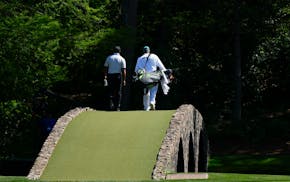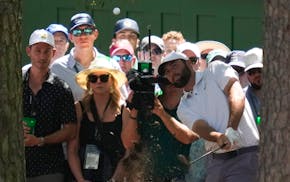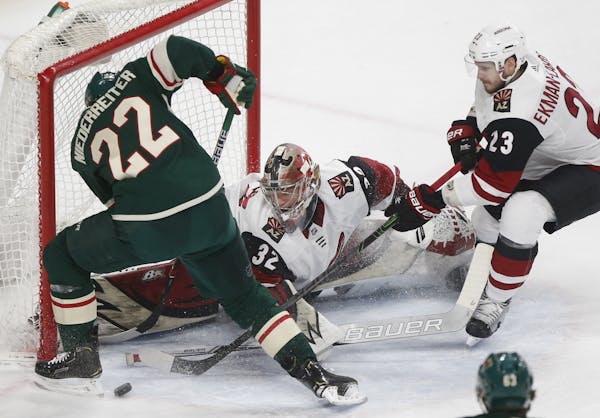You could say the Minnesota Wild is at a crossroads, but it's more like a roundabout.
It might not be good enough to make the playoffs, or make a playoff run, without making a roster-altering trade.
It might not be able to make the kind of trade it wants because it has made so many trades the last handful of seasons, robbing the team of draft picks and prospects.
Its roster is too mature to think about giving up on the dream of a playoff run and looking to the future.
It might not have played well enough, long enough, to justify another outlay of assets in a deal.
Its general manager is in the last year of his contract precisely because he has invested heavily in a group of players who have won exactly two playoff series and have never played in a conference final.
The owner is poised to lose money if the Wild doesn't make the playoffs, and has spent big money on Zach Parise, Ryan Suter and Mikko Koivu, of whom only Suter has consistently been healthy and an asset all season.
All of those trades and signings heightened the pressure to win immediately while reducing the team's salary cap space, which makes it tougher for the Wild to win big.
Round and round this team goes, with another trade deadline looming at the end of February.
Thursday night, the Wild began a five-game home stand, and it proved that for the home team at the X, 3-0 is the worst lead in hockey.
It led Arizona 3-0, lost 4-3 in overtime, and prompted its coach to question the team's competitive intellect.
"It was abysmal,'' Bruce Boudreau said. "You guys are at practice every practice and we practice D zone coverage every day. It's mental.''
Little-known fact: Despite the Wild's water-treading position around the last wild-card playoff spot, this team had played well of late, recording the fifth-most points in the NHL since Nov. 9.
Better-known fact: The Wild was playing very well at home, going 18-4-4 this season at the X before Thursday.
Watch this team meander in the standings, and you can mistakenly conclude that this edition of the Wild is not very good. The loss Thursday solidifies that theory.
But for more than three months, this team has actually been pretty good, too good for the GM not to want to roll the dice again.
Despite the roster limitations, Chuck Fletcher's past mistakes and a lack of tradable assets, it has little choice but to try a failing formula again.
In the real world, the definition of insanity is doing the same thing over and over and hoping for a different result.
In sports, insanity sometimes pays dividends.
Anyone who gave up on being a Red Sox, Cubs, Eagles or Cleveland sports fan missed quite a party. Last season, Nashville finished fourth in the Central Division and eighth in the conference, then lasted until the sixth game of the Stanley Cup Final.
Hockey is different from and less predictable than other major sports, yet other major sports produce surprises all the time.
Who knows? Add one scorer (a phrase that is probably tattooed on the inside of Fletcher's eyelids), get Devan Dubnyk to stand on his head for a couple of months, and suddenly Craig Leipold might feel good about spending so much, and Fletcher might be earning praise for his acquisitions of Dubnyk, Eric Staal and Matt Cullen.
You don't shove all of your chips to the center of the table, then fold.
Leipold will have to be careful not to let Fletcher make any moves that will severely damage the future of the franchise, but the reality of Fletcher's tenure is that the Wild remains stuck in the middle: too successful to pick at the top of the draft, too aggressive to rebuild with youth, too ambitious to stand pat.
At this point, the roundabout looks a lot like a roulette wheel. The Wild might as well give it another spin.
Jim Souhan's podcast can be heard at MalePatternPodcasts.com. On Twitter: @SouhanStrib E-mail: jsouhan@startribune.com

Souhan: Why Tiger Woods should keep swinging
Souhan: Scheffler wins Masters again, shows what makes him special
Morikawa falters in final round at Masters

Keeping up with the Joneses who helped design Augusta National's classic back nine


